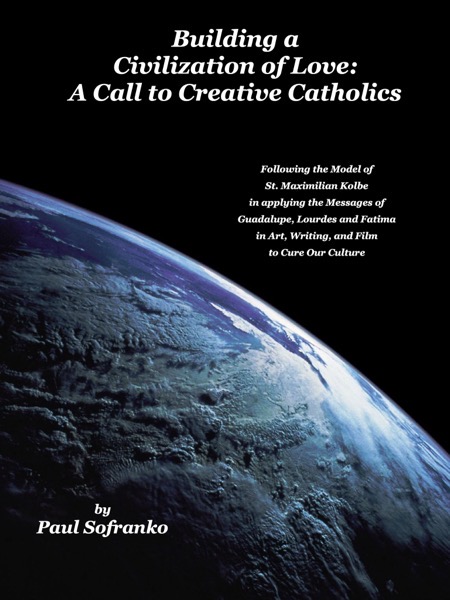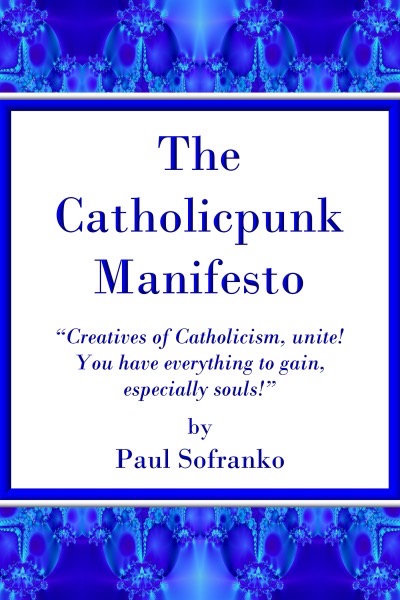An atheist leads me towards belief in God during a tumultuous time in my life through his use of vivid storytelling within a deeply imaginative universe.
It begs the question of, “How can a non-believer help someone to believe?”
Saints and spiritual writers often say that God can bring good out of evil. Evil is not just found in such actions as abortion, genocide, or slavery, but when any personal will opposes the Divine, however minor the act is. Atheism is that kind, ranging from mere unthinking disbelief to the more militant. God wills us to know and love him; atheists reject that will. I am not sure where in that range J. Michael Straczynski, the creator of the 1990s sci-fi TV show, “Babylon 5,” falls. He had a Catholic background but strayed from belief somewhere along the way. One episode of his “Babylon 5” drilled me to the floor with its consideration of Jesus in the Garden of Gethsemane. “Passing Through Gethsemane” (S3E4) made me look at Christ’s Agony in the Garden from a perspective that treated it not as some pious event memorialized in the Sorrowful Mysteries of the Rosary, but a reality to enter into so as to ponder how your actions might manifest themselves.
Straczynski is an atheist, yet he treated religious belief with a respect at variance with today’s atheists. He regarded religion as being part of the human condition serving as an excellent vehicle to explore it.
In “Passing Through Gethsemane,” a guest character, Brother Edward, (played by Brad Dourif,) is a monk dwelling on Babylon 5 with other members of his order. He has a past, which I won’t reveal for fear of spoiling the show. (Although the episode aired in 1995, streaming services enable new fans to discover the series regularly. If you already know Babylon 5, then you know about this episode.) In it, he is asked by Ambassador Delenn (played by Mira Furlan,) “What is the defining moment of your belief….the emotional core…?” Edward replies with the background on Gethsemane, and specifically that Jesus knew what was going to happen to him. In a moment of weakness, he prayed for the cup to pass from him, so he would be spared the pain of what was to come, including death. But of course, he wouldn’t be spared and he’d be arrested. Edward continues with an emphasis that Jesus didn’t have to be there when the soldiers arrived to arrest him, that he could have left and postponed the inevitable for a few hours or even days. But Jesus knew what would happen and stayed anyway. Brother Edward concludes that he honestly doesn’t know if he would have had the courage to stay.
When I first saw that episode, that latter part blew my mind. “Seriously,” I thought, “does anyone actually look at a Biblical event and personally connect it to their life? As in, what they might do if they were there and then build their faith life from that? Everyone thinks that if they were back in Jesus’ days they’d of course follow him unhesitatingly and would never be in the crowd screaming ‘Crucify him! Crucify him!’ But, to seriously meditate upon a specific event, dwell on it, and make it the ‘defining moment’ and the ‘emotional core’ of their faith life?”
Perhaps a digression into what my ‘emotional core’ was like at the time. I was ‘raised Catholic’ but left the Faith nearly ten years earlier. My prayers about some complicated desperate situations weren’t answered. I also coincidentally fell prey to some atheistic and libertarian science fiction novels that convinced me organized religion was a sham and a means of exercising mass control over the populace. So I left, and life immediately got better. So much for religion. (But I never became an atheist. I did flirt with libertarianism, though.) Flash forward to how I was when “Passing Through Gethsemane” aired and you’ll read a different story. Life had gotten progressively worse. I had relocated from across the country to escape some more complicated desperate situations (these had the habit of following me) and my ‘emotional core’ meant that drinking was defining my moments. Capt. Morgan and Jose Cuervo were my saviors; here I am being mind-struck by some monk wondering if he would have had the courage to stay in Gethsemane and await the soldiers to take him to his execution. Me, who defined courage by how skillfully I can smuggle bottles into the house.
You’re probably thinking that this TV episode changed my life right then and I found a priest, went to confession, and resumed participating in the life of the Church. No. Reversion was still a few years off. But seeds were planted that started growing, eventually bearing fruit later on.
The crux of this is that faith powers a spiritual life. What I learned from that episode, ironically written by an atheist, is that for faith to have meaning it has to grip you by the scruff of your neck, shake you up and down, and demand that it be lived and taken seriously. The kind of faith that inspires people to willingly sacrifice their lives, not the faux faith that attends Mass whenever they feel like it, or sets it aside when it proves inconvenient to their political or business choices. The latter kind is mental pablum designed to make you excuse your sins and feel good about yourself.
That was in marked contrast to the faith that I had. In the years before I left the Church, my Catholicism was broad but not deep. It couldn’t have done what Brother Edward did; intimately apply some event to my own life to create an emotional core that defined it.
A faith that defines your emotional core such as what drove Brother Edward to contemplate his place in Gethsemane fosters the willingness to firmly plant your feet and say, “This is what I am about, regardless of the passing fancies of society or what the neighbor’s think. This is me, my self-defined ‘I AM.’” It confronts the crucial significance of belief and its consequences. This is the willingness to face down death; literal death or just those things which challenge you or can kill your soul. But perhaps more importantly, that drawing from this power and courage means you have the willingness to be a transformative force in the society around you in a manner best suited to your unique talents.
That may have been what Brother Edward was wondering. Not only the literal, “If I was in Gethsemane, would I have…,” but in drawing from that would he have had the courage to face everything challenging him, both personal and external.
These are challenges everyone faces, and an atheist started me on the way.
Are you a creative Catholic? ""Building a Civilization of Love: A Call to Creative Catholics," is my new book exhorting Catholics to apply their faith to change the culture for the better!
Know someone who is an alcoholic or addict?
"The Sober Catholic Way" helps Catholics by describing the many ways in which their faith can assist in maintaining sobriety, and is a basic handbook on how anyone can live a sober life. . (Thank you!!)
Like this:
Like Loading...


 My new book, inspired by St. Maximilian Kolbe and my way of working out Total Consecration to Mary, is now available in paperback through Amazon! Some of you were waiting for this! (Thank you in advance!)
My new book, inspired by St. Maximilian Kolbe and my way of working out Total Consecration to Mary, is now available in paperback through Amazon! Some of you were waiting for this! (Thank you in advance!)